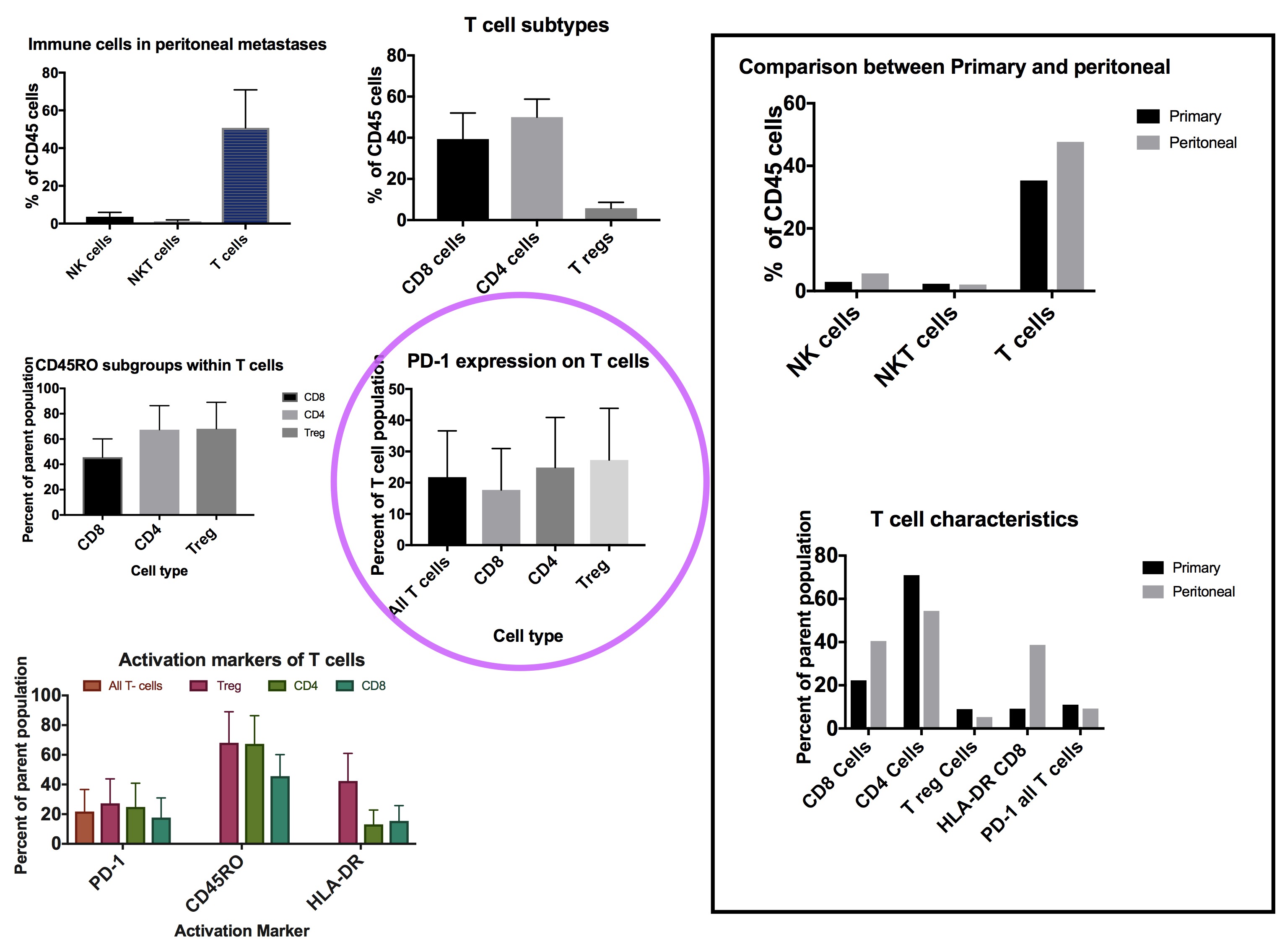|
Back to 2018 Program and Abstracts
NOVEL ORGANOID MODELS TO EVALUATE ROLE OF IMMUNOTHERAPY FOR COLORECTAL PERITONEAL METASTASES
Vignesh Narasimhan*, Toan Pham, Michael Michael, Robert G. Ramsay, Alexander Heriot
Surgery, Peter MacCallum Cancer Centre, Melbourne, Victoria, Australia
Introduction:
Colorectal cancer is the third most common cancer worldwide. Up to 25% of patients have disease that spreads to the peritoneum, associated with a very poor prognosis. Systemic chemotherapy, whilst the mainstay of treatment only offers a modest improvement in survival. Surgical advances through cytoreductive surgery and hyperthermic intraperitoneal chemotherapy (CRS and HIPEC) is effective in very selected patients. However, the vast majority of patients have high disease burden, deeming them inoperable. Immunotherapy, while effective in a number of cancers, have an undefined role in peritoneal disease. The immune profile and infiltration of immune cells in peritoneal metastases has not been assessed previously. We aim to explore the immune landscape, and assess the role of immunotherapy in colorectal peritoneal metastases in a novel pre-clinical organoid model.
Methods:
Fresh peritoneal tumour tissue from microsatellite stable (MSS) patients with colorectal peritoneal metastases was used for flow cytometry analysis to evaluate immune cell infiltration. Tissue was further processed to develop robust organoid models. Simultaneous patient matched tumour infiltrative lymphocytes (TILs) were cultured and enriched with interleukin-2 (IL-2). Once organoids were robust and replenishable, they were co-cultured in a novel cytotoxic assay with various concentrations of TILs to assess the cytotoxic ability of the lymphocytes. Organoids were further cultured with TILs with the addition of an anti PD-1 antibody.
Results:
Flow cytometry (FACS) revealed a large CD45 population of mainly T cells. There was an even mix of CD4 and cytotoxic CD8 cells. However, there were unexpectedly high T-regulatory cells, comprising upto 15% of CD4 cells. PD-1 expression on T cells, whilst variable, was upto 75%, suggesting a possible role for anti PD-1 antibody therapy. Co-culture with organoids and TILs in a live cell scanning assay demonstrated successful organoid killing by the TILs, with high levels of interferon-δ detected in the supernatant. In patients with high PD-1 expression on FACS, addition of a PD-1 antibody revelaed significantly increased cytotoxic killing of the organoids.
Conclusions:
This early pre-clinical data demonstrates a potential role for immunotherapy in the setting of peritoneal disease. These early results need to be expanded with a larger cohort, and validated in an in-vivo setting.

Back to 2018 Program and Abstracts
|

